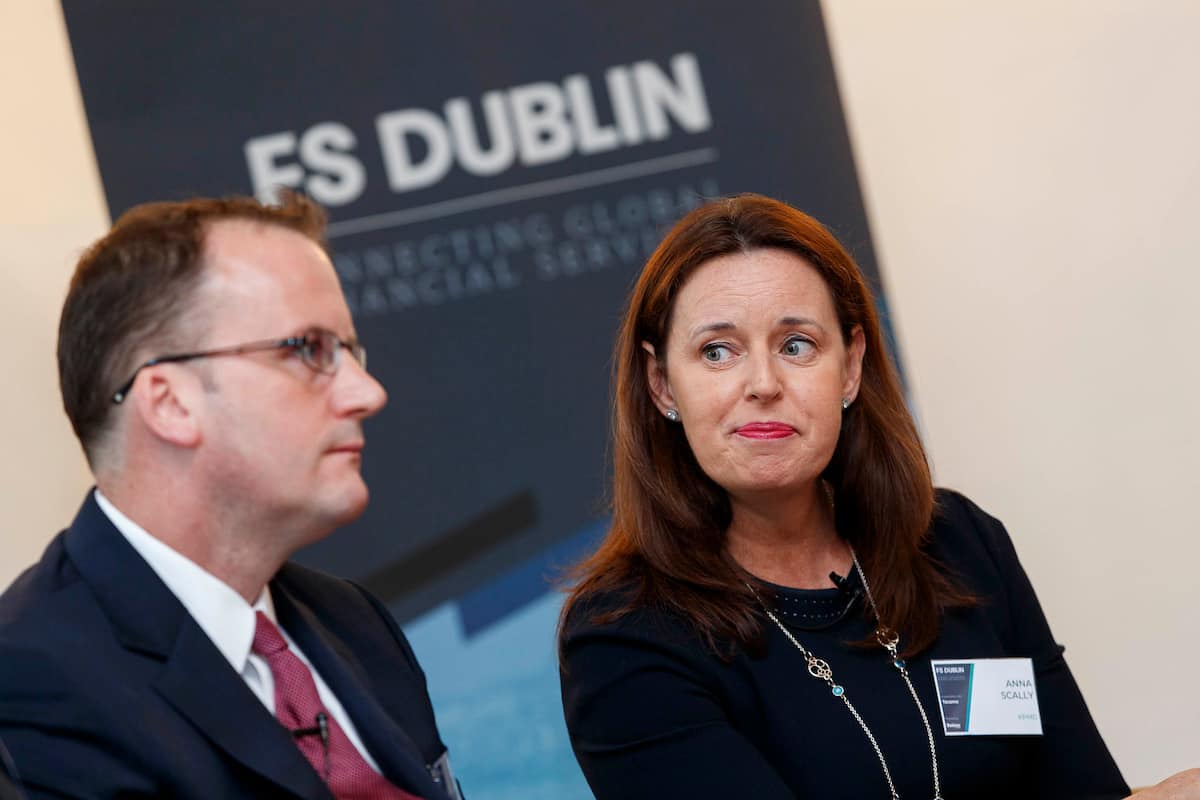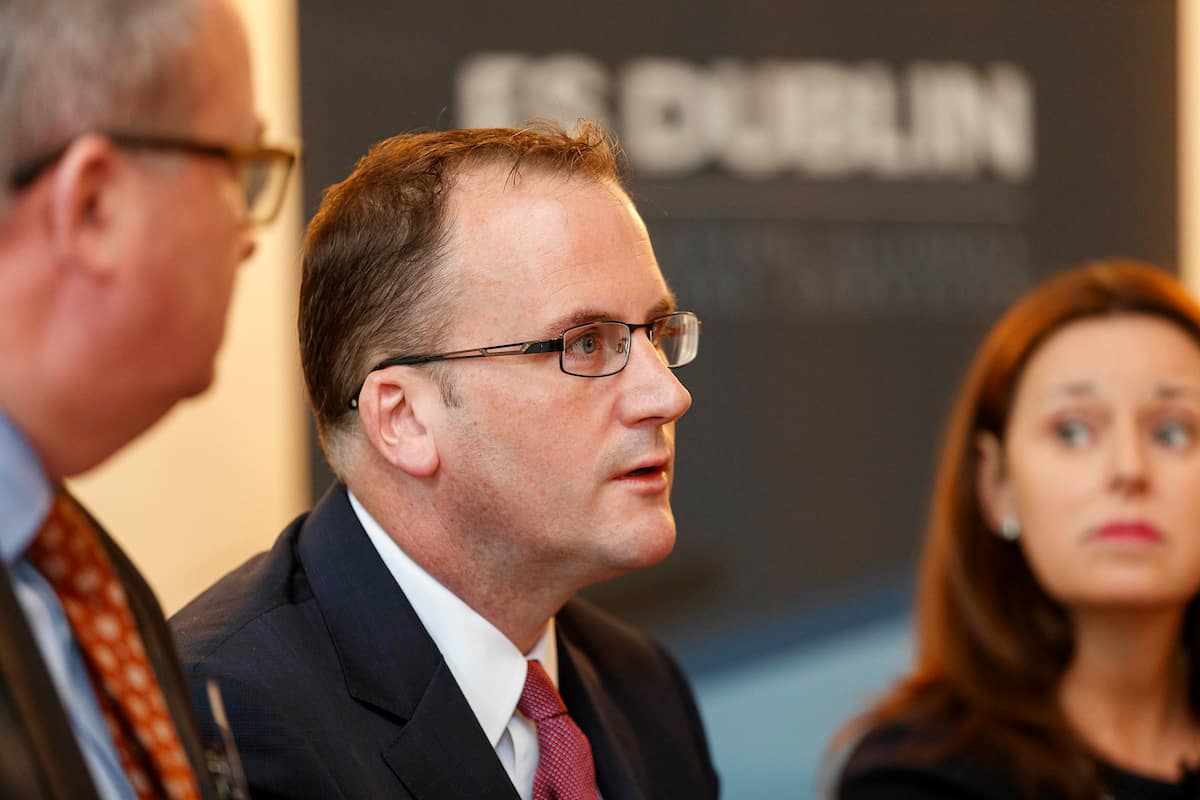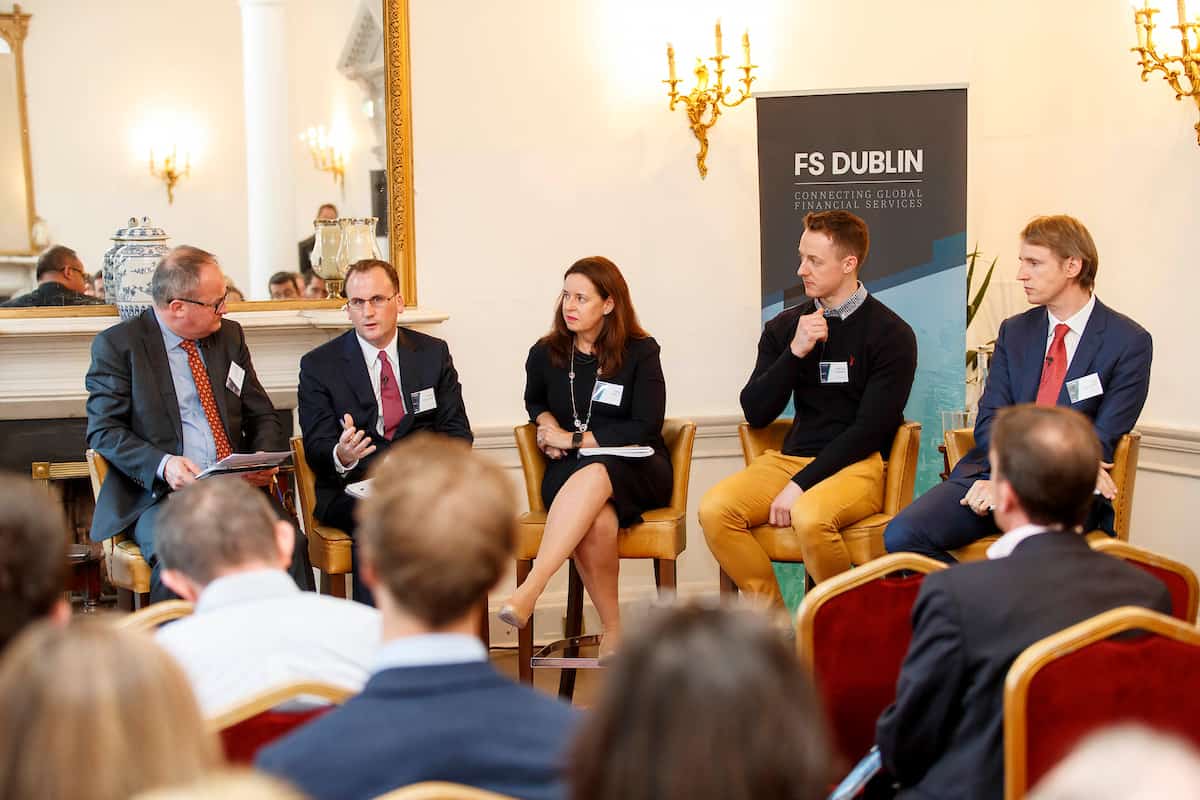Leading industry voices discussed the challenges around digital taxation at the FS Forum in Dublin.
The FS Dublin Forum, on 18th September 2019, brought together leading industry voices to discuss how can companies balance managing the tax challenges of global cross border commerce, with the demand for business growth and innovation, while ensuring worldwide tax compliance.
Under the umbrella theme of International Digital Taxation, the main discussion topics included what’s next in the global VAT/GST evolution, and the daily business reality of tax management.
The panel, moderated by, Marc Coleman, an advisor to Ibec and other leading organisations, include David O’Sullivan, VAT Policy Advisor, OECD; Anna Scally, International Tax Partner, Head of Technology & Media, Fintech Lead, KPMG; John McCarthy, Founder & CEO, Taxamo and Vincent Manning, Tax Manager, Zendesk.
John McCarthy, CEO, Taxamo got the ball rolling, discussing the global, trends and pressures on governments to come up with some cohesive regulation around digital taxation, with some 70-plus countries currently all with different approaches. He suggested the question everyone needs to be asking themselves: “What parts of my business are impacted and how can I ensure that I am selling compliantly throughout the world?” He acceded it’s hard to keep up with all the different jurisdictions and compliance laws, pointing out that Asia is ahead of the game, with Taiwan already charging a direct tax of 3%.
“Traditionally as a business you sell to a market and sell to another when successful. Digital sells globally from day one,” Mr McCarthy pointed out. “The impact to taxation happens earlier in the lifecycle of the business.”

John McCarthy, Taxamo pictured at the FS Dublin Forum
Currently, while each country has a different invoicing processes, the world is waiting for the OECD to make recommendations so that everyone can move together.
Mr McCarthy added, “There is a market impact on digital business, we will see litigation coming from countries where they can fine companies that haven’t paid their VAT. Right now it’s early stages but we will see more press about this issue that will come to board level in digital business. This is what we will see in the future.
Vincent Manning, Tax Manager EMEA, Zendesk, warned that non-compliance, “Poses a massive financial risk. VAT rates are quite high, if you don’t carry out your analysis you are not complying and having to pay penalties can be very costly.” He also noted the reputational cost as well, and the importance of maintaing a good relationship relationship with customers.
He pointed out that real time reporting is at the cutting edge and is the future of the sector.

Anna Scally, KPMG, Vincent Manning, Zendesk, John McCarthy, Taxamo
Moderator, Marc Coleman, suggested that Ireland is moving towards a high tech economic culture, with more training on blockchain and ecommerce analytics being taken into consideration in accounting exams.
Anna Scally, Tax Partner, KPMG, stated that, “Rules are different and process are different and systems are different from all countries, but should be accessible to both large and small businesses. Small business cannot compete.”
Ms Scally also agreed that real time reporting was essential, and provides a richer source of information.

Anna Scally, International Tax Partner, Head of Technology & Media, Fintech Lead, KPMG Ireland
She also discussed BEPS2 as the natural next wave, BEPS1 not having tackled digital taxation. She predicts, “a massive shift from corporate tax regimes in all countries throughout the world, a fundamental shift from transfer pricing from home country to the country that you do business.”
Ms Scally pointed out that 11 countries have introduced their own digital taxations, and 15 others have proposals. Only 8, including Ireland, are waiting for the OECD around digital taxation. She questioned if there are no new changes until 2021-2022 from the OECD, “Are we going to end up with 2 tier taxation between large and small business?”
David O’Sullivan, VAT Policy adviser, OECD pointed out there has been a change from a goods-based marketplace to an intangible marketplace that is set to be a USD 4 trillion by 2021, with 25% of that trade cross border, meaning potentially USD 100 billion in VAT at stake annually.
He noted Norway and New Zealand as pioneers in moving forward on this. He noted, “The OECD has proposed simplified compliance…In Ireland it involves 2 pages, in other countries it can be as much as 32 pages. When simplified online applications are supplied to consumers there is no need for full VAT invoices.”
He concluded, “If you make it easy, businesses are complying.”

David O’Sullivan, VAT Policy Advisor, OECD







